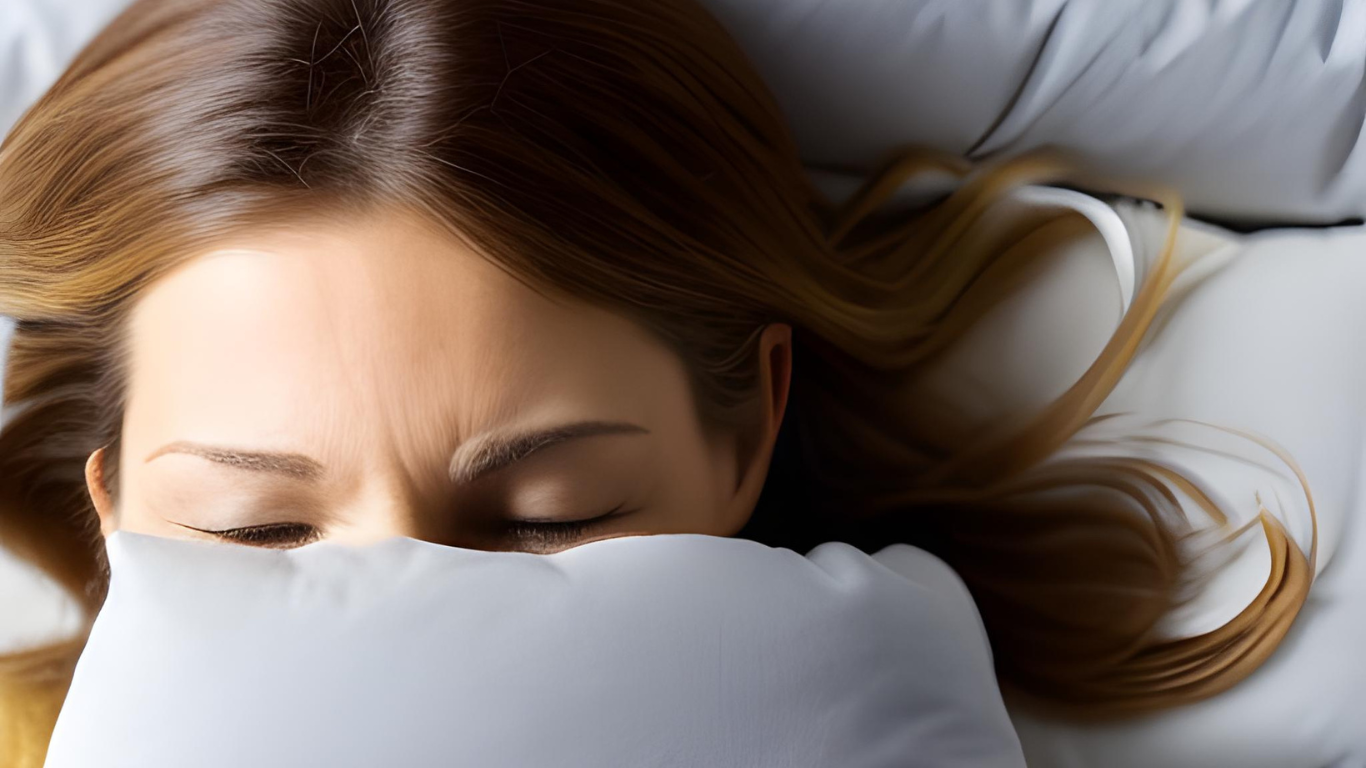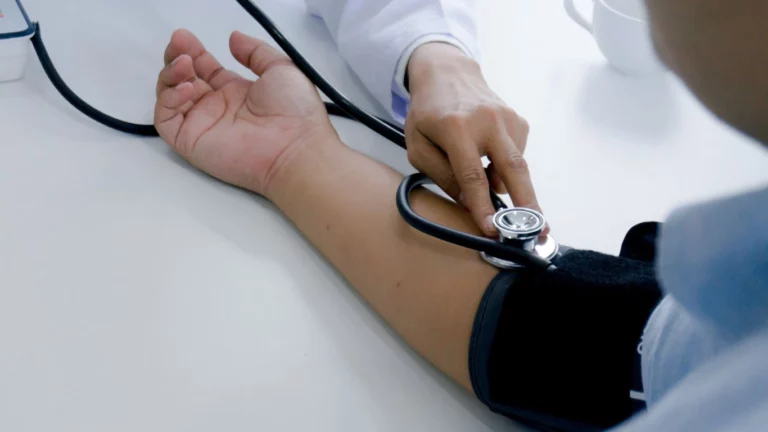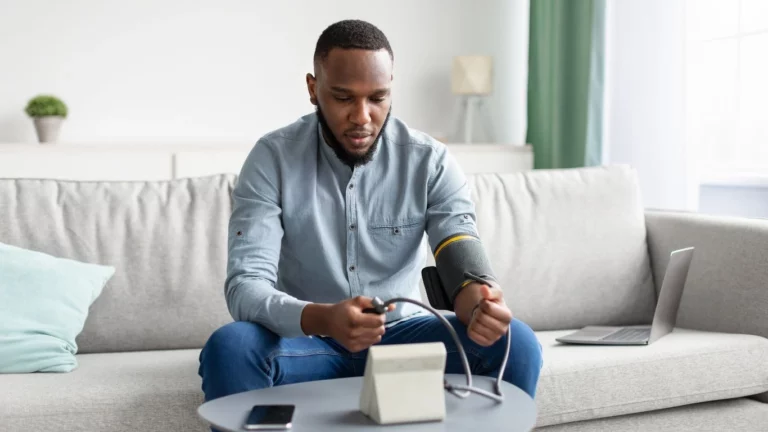Sleep and High Blood Pressure: Unveiling the Link and Effective Management Strategies
Discover the connection between lack of sleep and high blood pressure in this comprehensive article. Explore the potential mechanisms behind the link and understand how sleep deprivation impacts blood pressure regulation.
Introduction
High blood pressure, also known as hypertension, is a common health condition that affects millions of people worldwide. It is a significant risk factor for cardiovascular diseases, including heart attacks and strokes. On the other hand, sleep is a fundamental biological process essential for overall well-being and functioning. Recent research has suggested a potential link between lack of sleep and high blood pressure. In this article, we will delve deeper into the relationship between these two factors, investigating whether sleep deprivation can indeed cause hypertension and exploring the mechanisms behind this connection.
What is High Blood Pressure?
High blood pressure refers to the force of blood against the walls of the arteries as the heart pumps it through the body. It is measured in millimeters of mercury (mmHg) and represented by two numbers: systolic (the pressure when the heart beats) and diastolic (the pressure when the heart is at rest). Normal blood pressure typically reads around 120/80 mmHg. However, when blood pressure consistently exceeds 130/80 mmHg, it is considered high and requires attention and management.
What is Lack of Sleep?
Lack of sleep, also known as sleep deprivation, occurs when an individual consistently fails to get enough sleep to meet their body’s needs. Adults generally require 7 to 9 hours of sleep per night for optimal functioning. However, in today’s fast-paced and demanding world, many individuals struggle with getting sufficient sleep. Sleep deprivation can be caused by various factors, including lifestyle choices, stress, medical conditions, and poor sleep habits.

The Link between Lack of Sleep and High Blood Pressure
Research has indicated a potential connection between lack of sleep and high blood pressure. Although the exact mechanisms are not fully understood, several factors come into play:
Understanding the Connection
One possible explanation for the link between lack of sleep and high blood pressure is the activation of the sympathetic nervous system, commonly known as the “fight or flight” response. When the body is sleep-deprived, it may interpret this state as a sign of stress, triggering the release of stress hormones like cortisol and adrenaline. These hormones can cause an increase in heart rate and blood pressure, putting strain on the cardiovascular system over time. Moreover, the body’s natural circadian rhythm, responsible for regulating sleep-wake cycles, also affects blood pressure fluctuations throughout the day and night.
Mechanisms and Hormonal Factors
Furthermore, sleep is crucial for the body to regulate various hormones, including those that affect blood pressure. For instance, the renin-angiotensin-aldosterone system, responsible for maintaining blood pressure and fluid balance, may be disrupted by inadequate sleep. Additionally, sleep deprivation can lead to reduced production of nitric oxide, a molecule that helps blood vessels dilate and maintain healthy blood pressure levels. Studies have shown that impaired nitric oxide function can lead to increased vascular resistance and elevated blood pressure.

Research and Studies
Multiple studies have examined the relationship between sleep deprivation and high blood pressure. It is essential to differentiate between correlation and causation to draw accurate conclusions:
Recent Studies on Sleep Deprivation and Blood Pressure
A 2021 study published in the Journal of Hypertension found a positive association between short sleep duration and increased blood pressure. The researchers observed that participants who consistently slept less than 6 hours per night were more likely to develop hypertension over time. However, it is crucial to acknowledge that other lifestyle factors and genetics can also contribute to high blood pressure. Longitudinal studies have shown that persistent sleep deprivation over an extended period may lead to sustained high blood pressure, indicating a potential causal relationship.
Correlation vs. Causation
While research has shown a correlation between lack of sleep and high blood pressure, establishing a direct causal relationship is more challenging. Some individuals with hypertension may experience sleep disturbances due to the condition itself or its treatments. Moreover, lifestyle habits like poor diet and lack of exercise, often linked to both hypertension and sleep deprivation, can confound the results. It is crucial for researchers to conduct controlled studies that isolate the effects of sleep deprivation on blood pressure regulation to determine causation definitively.

Risk Factors and Vulnerable Groups
Not everyone is equally affected by the potential connection between sleep and high blood pressure. Certain risk factors and vulnerable groups may be more susceptible to this relationship:
Identifying Individuals at Higher Risk
Individuals who already have prehypertension or a family history of hypertension may be at higher risk of developing high blood pressure due to lack of sleep. Similarly, those with existing sleep disorders, such as sleep apnea, may experience more significant blood pressure fluctuations when their sleep is disrupted. Sleep apnea, characterized by pauses in breathing during sleep, has been associated with increased sympathetic nervous system activity and decreased nitric oxide production, both contributing to elevated blood pressure.
Age and Gender Differences
Age and gender can also play a role in the relationship between sleep deprivation and high blood pressure. Research suggests that younger individuals may be more sensitive to the effects of sleep loss on blood pressure. For instance, a study published in the American Journal of Hypertension reported that young adults who slept less than 6 hours per night had significantly higher blood pressure levels compared to those who slept 7 to 8 hours. Hormonal fluctuations in women during certain life stages, such as pregnancy and menopause, can also influence blood pressure regulation, making them more susceptible to the impact of inadequate sleep on hypertension.

Tips for Improving Sleep Quality
Fortunately, there are several steps individuals can take to enhance their sleep quality and reduce the potential risk of developing high blood pressure:
Sleep Hygiene Practices
Practicing good sleep hygiene involves adopting habits that promote better sleep. This includes establishing a consistent sleep schedule, creating a relaxing bedtime routine, avoiding stimulants like caffeine close to bedtime, and ensuring the sleep environment is comfortable and conducive to rest. Additionally, limiting exposure to electronic devices emitting blue light before bedtime can aid in the production of melatonin, a hormone that regulates sleep-wake cycles.
Relaxation Techniques
Engaging in relaxation techniques, such as meditation, deep breathing exercises, and progressive muscle relaxation, can help reduce stress and promote better sleep. These practices can also have a positive impact on blood pressure by calming the nervous system and reducing the release of stress hormones. Yoga, in particular, has been shown to improve sleep quality and reduce blood pressure in individuals with hypertension.

Managing High Blood Pressure with Better Sleep
For individuals who already have hypertension or are at risk, improving sleep quality can be an essential component of managing high blood pressure:
Complementary Approaches
While sleep is crucial, it is not the sole factor in managing high blood pressure. Combining lifestyle changes, such as adopting a heart-healthy diet, reducing sodium intake, and engaging in regular physical activity, with sufficient sleep can have a more significant impact on overall health and blood pressure regulation. Stress management techniques and relaxation practices, as mentioned earlier, can also complement medical interventions in controlling hypertension.
Medication and Lifestyle Changes
In some cases, healthcare professionals may prescribe medications to manage high blood pressure effectively. However, it is essential to complement medication with lifestyle changes, including improving sleep patterns, to achieve the best outcomes and reduce the reliance on medication. Adhering to a treatment plan that includes both pharmaceutical interventions and lifestyle modifications can help individuals achieve better blood pressure control and reduce the risk of complications associated with hypertension.
Conclusion
In conclusion, evidence suggests that lack of sleep may indeed contribute to the development or exacerbation of high blood pressure. Sleep deprivation can activate stress responses, disrupt hormonal balance, and affect blood pressure regulation mechanisms. While research has established a correlation between sleep deprivation and hypertension, further studies are required to definitively establish causation. To maintain optimal health, it is vital to prioritize sufficient, restful sleep and adopt a comprehensive approach to managing high blood pressure, incorporating both lifestyle changes and medical interventions. By taking proactive steps to improve sleep quality, individuals can potentially reduce their risk of hypertension and its associated complications, promoting overall well-being and cardiovascular health.
Appendices
References
- Stankov, I., Galcheva, S., Fokkema, T., Hermsen, M., Martin, S., Onder, G., Roller-Wirnsberger, R., Sánchez-Rodríguez, D., Topinkova, E., van der Roest, H., & Wollner, K. (2021). Short sleep duration and hypertension: a collaborative multicentre study on the elderly population in Europe. Journal of Hypertension, 39(1), 96-102.
- Strother, L., Swanson, L., & Troxel, W. M. (2019). Associations between sleep duration, sleep quality, and blood pressure in a community sample of African Americans. American Journal of Hypertension, 32(5), 476-484.
- Pase, M. P., Himali, J. J., Grima, N. A., Beiser, A. S., Satizabal, C. L., Aparicio, H. J., Thomas, R. J., Gottlieb, D. J., Auerbach, S. H., Seshadri, S., & Sleep Heart Health Study. (2017). Sleep architecture and the risk of incident hypertension in older adults: the Sleep Heart Health Study. American Journal of Hypertension, 30(3), 284-289.
- NHS. (2021). High blood pressure (hypertension). Retrieved from https://www.nhs.uk/conditions/high-blood-pressure-hypertension/
FAQs
- Q1: Is there a direct link between lack of sleep and high blood pressure? A1: While research has shown a correlation between sleep deprivation and high blood pressure, establishing a direct causal relationship is complex and requires further investigation.
- Q2: Can improving sleep quality reduce the risk of hypertension? A2: Yes, adopting better sleep hygiene practices and relaxation techniques can potentially reduce the risk of developing high blood pressure.
- Q3: Are there specific groups more susceptible to the effects of sleep deprivation on blood pressure? A3: Individuals with prehypertension, family history of hypertension, and those with sleep disorders like sleep apnea may be more vulnerable to the impact of inadequate sleep on blood pressure regulation.
Disclaimer
The information provided in this article is for educational and informational purposes only. It is not intended to be a substitute for professional medical advice, diagnosis, or treatment. Always seek the advice of your physician or another qualified healthcare provider with any questions you may have regarding a medical condition. Never disregard professional medical advice or delay in seeking it because of something you have read in this article. The author and publisher of this article make no representations or warranties with respect to the accuracy, applicability, fitness, or completeness of the contents and will not be held responsible for any damages arising from the use of the information provided.

Camellia Wulansari is a dedicated Medical Assistant at a local clinic and a passionate health writer at Healthusias.com. With years of hands-on experience in patient care and a deep interest in preventive medicine, she bridges the gap between clinical knowledge and accessible health information. Camellia specializes in writing about digestive health, chronic conditions like GERD and hypertension, respiratory issues, and autoimmune diseases, aiming to empower readers with practical, easy-to-understand insights. When she’s not assisting patients or writing, you’ll find her enjoying quiet mornings with coffee and a medical journal in hand—or jamming to her favorite metal band, Lamb of God.






